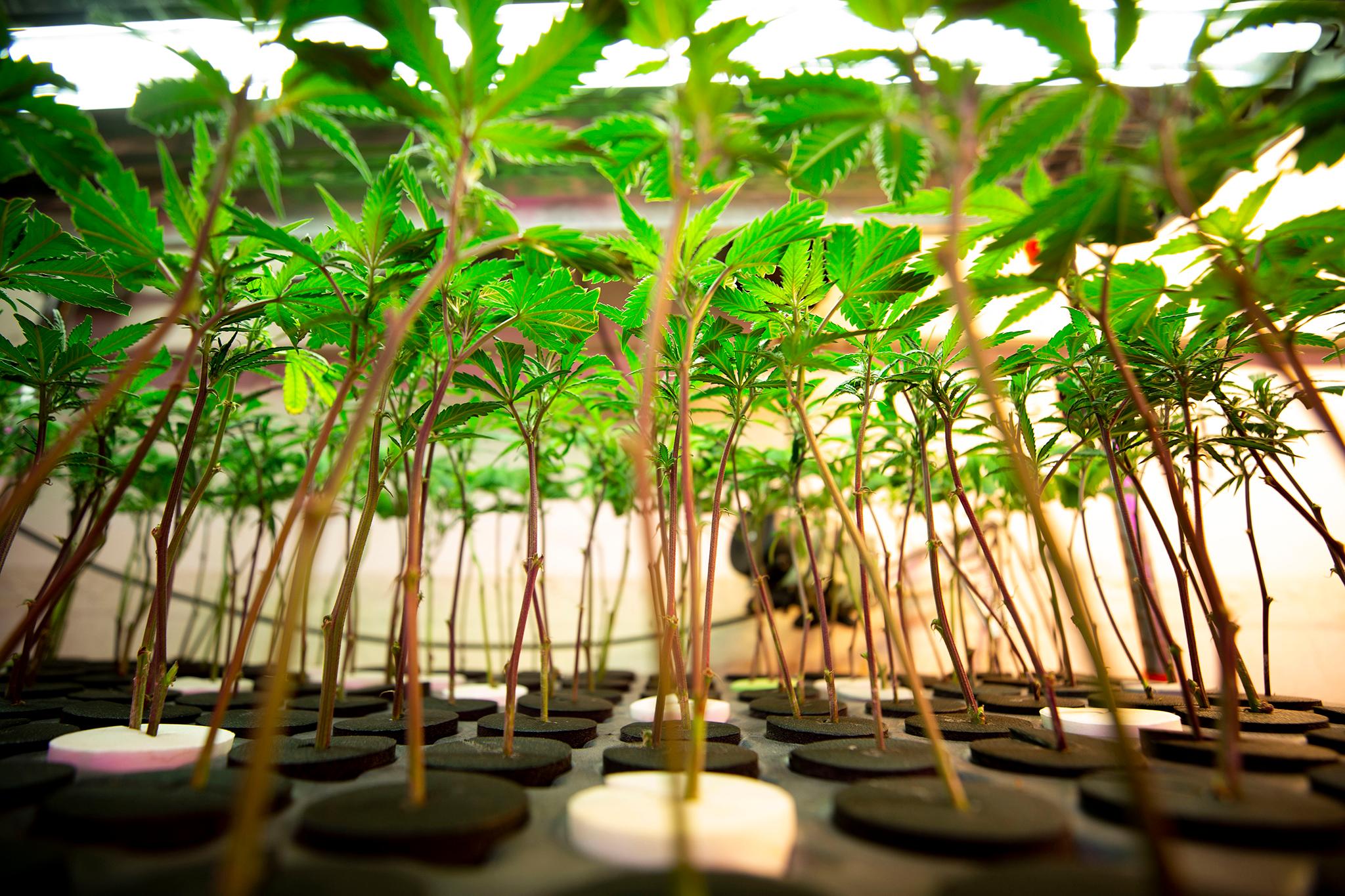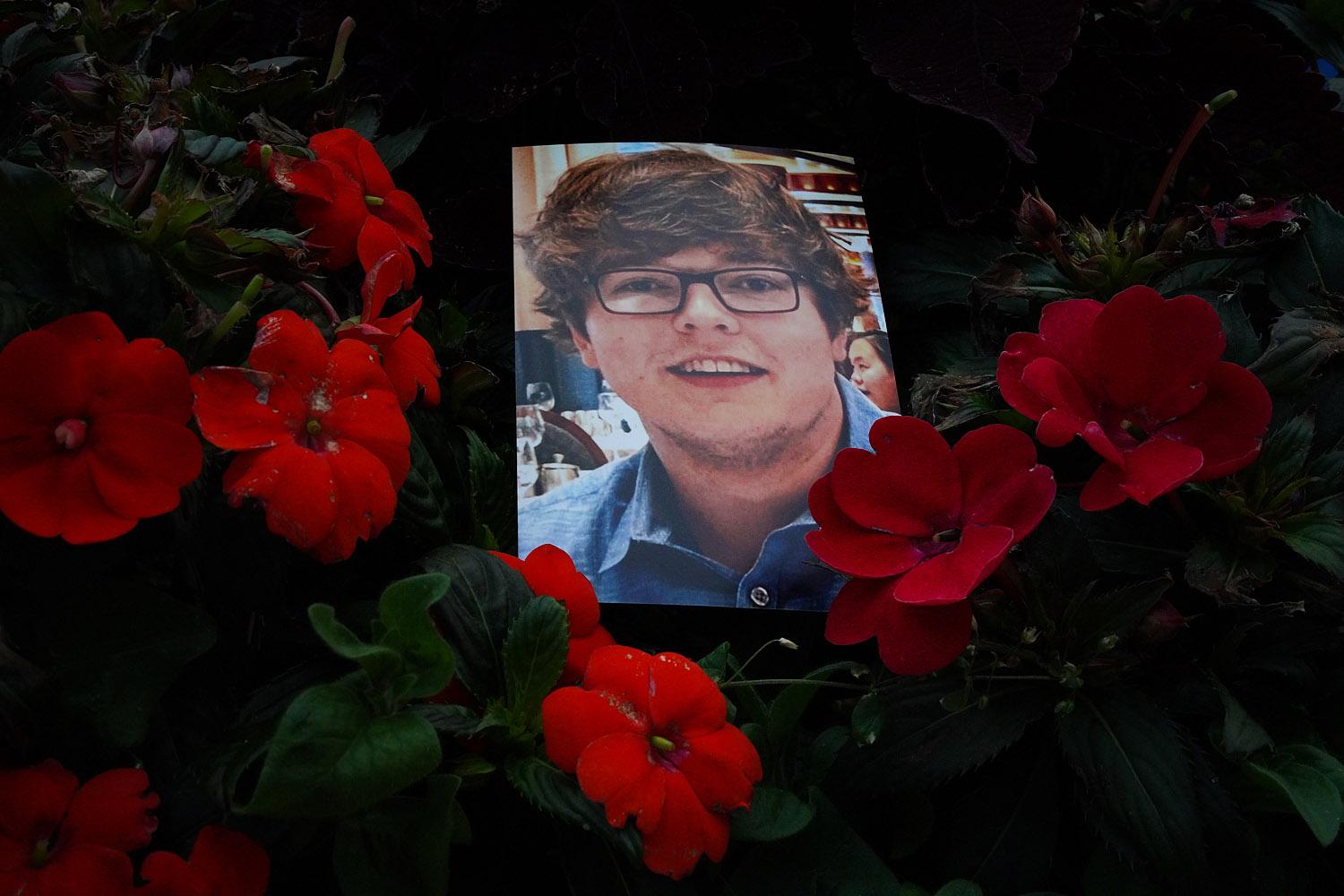
The U.S. Department of Health and Human Services has recommended officially rescheduling cannabis, putting it in the category of less dangerous drugs — classified similar to ketamine rather than heroin. The change could have far reaching consequences, even in Colorado where the drug is already legal under state law and tightly regulated. It could also ease tax burdens on marijuana businesses and allow more research of cannabis at universities.
HHS’s recommendation will be considered by the Drug Enforcement Administration which has independent control over the scheduling of drugs. Schedule I is reserved for the most dangerous drugs with no medical value and a high potential for abuse.
While the rescheduling is nowhere near officially done, the recommendation by HHS was praised in Colorado by researchers, marijuana businesses and some policymakers. But it was decried by those who believe cannabis has become too potent to be reclassified and others who say it should be removed from classification altogether.
“This is really a big step forward,” said Mason Tvert, a spokesperson for Colorado Leads, a marijuana industry group. “It's by no means the end of the road. There's still a need for further reform.”
Tvert said it’s unknown what the DEA will eventually decide, and could deny the recommendation to reschedule.
“The DEA does have a history of ignoring science and reality,” said Tvert, who was a leader of Colorado’s successful push to legalize recreational sales. “But we would like to think that the law enforcement agency would take science advice from the science and health agency and follow that recommendation.”
Gov. Jared Polis said in a statement that he is pleased with what he said was a common sense decision to reschedule cannabis. He urged the federal government not to delay the process.
“This continues to be one of the largest barriers Colorado’s thriving cannabis industry faces and we look forward to seeing the demise of this archaic tax penalty levied against state-regulated businesses,” Polis said.
A provision of federal tax law called 280e currently prevents businesses from claiming normal tax deductions on the sale of any Schedule I or II drugs, said Sam Kamin, a law professor at the University of Denver.
“It means that they can't take normal deductions on their taxes, and they end up paying something like a 70 percent tax rate,” said Kamin. Rescheduling marijuana as a Schedule III drug would allow the businesses to deduct taxes like any other industry. “So I think for people in the industry, I think that's probably one of the most pressing concerns.”
While it’s unknown what the DEA will eventually decide, it comes as good news for an industry that has suffered a significant decline in sales from the pandemic boom, down 21 percent from 2021 to 2022. Some businesses have closed their doors or consolidated. Any financial relief is welcome.
“It couldn't have come at a better time,” said Joe Hodas, marketing officer with Wana Brands, an edibles company based in Colorado. “If we can get some relief, some momentum during this downturn, that in and of itself could help push us in the right direction.”
But Hodas said he wasn’t celebrating yet.
“We've seen that rug pulled out, the proverbial Charlie Brown football pulled away from us at the last minute so many times, that to celebrate preemptively makes no sense.”
There’s also hope a rescheduling could free up more banking services, which are federally regulated. Most marijuana businesses have access to bank accounts now, but many still don’t have access to the full set of services available to a traditional business.
Forty states now allow either medical or recreational sales of marijuana. Colorado was the first state in the nation to sanction legal recreational sales of cannabis in Jan. 2014. Since then more than a dozen states have passed marijuana reforms of their own from New York to California. Marijuana has remained listed as a schedule I drug through it all, making it technically federally illegal.
Others with industry ties said the federal recommendation doesn't go far enough. Former Democratic state lawmaker Jonathan Singer served at the Capitol after the state legalized recreational marijuana and was instrumental in creating a regulatory framework for the new industry.
He said it’s a remarkable first step that the federal government is acknowledging cannabis has medicinal value.
“But really, cannabis should be taken off the drug schedule just like alcohol has been taken off the drug schedule,” he said.
“I ask myself why it's being put on Schedule III and is considered more dangerous than Xanax, Ambien,” Singer added. “Medications that can be potentially fatal and have a huge addiction component to it.”
Colorado’s Democratic U.S Senator John Hickenlooper said something similar earlier this month.
“I don't like the reclassification. I think it should be declassified,” Hickenlooper told a group of reporters at an informal gathering.
Hickenlooper opposed recreational marijuana when he served as Governor, but has since changed his position.
Making marijuana a Schedule III drug would make it easier for researchers to study its effects. Currently, its status as a Schedule I drug means getting marijuana to use in studies is severely limited, with researchers often relying on federally grown cannabis, not what’s currently on the market in hundreds of stores across Colorado.
In recent years Colorado has been grappling with how to get more data on the impact of marijuana, particularly highly potent products. These stronger forms of marijuana are extracted from the plant and consumed in a number of different forms.They have become more popular and widespread since legalization. THC levels in products based on concentrate can be up to nine times higher than in cannabis flower, which typically has a range of about 10 to 30 percent. Studies have not established a causal link between marijuana use and psychological impacts.
Even if marijuana was moved to Schedule III, it would leave it in a legal gray area. Schedule III drugs, like ibuprofen with codeine, still can’t be sold without a prescription. So recreational sales of cannabis would still technically violate federal law.
“So I don't want to jump the gun and start celebrating necessarily,” said Tvert. “But it is very noteworthy that the Health and Human Services administration under a U.S. president has recommended for the first time in history that we reclassify cannabis under federal law.”
Others oppose the reclassification recommendation.
Dawn Reinfeld is the executive director of the Boulder based non-profit Blue Rising, and has worked on state legislative policy to reduce youth access to highly potent marijuana. She said the federal government was “totally disconnected from the havoc that these drugs are wreaking in our communities.”
She said it’s misguided and dangerous for the federal government to suggest regulating highly potent products the same way as those with low levels of THC.
“The federal government needs to have a better understanding of what high potency THC is and what the products are,” said Reinfeld. “And this announcement makes me think that they are still thinking that this is the pot from the Woodstock years, and we know that it's not.”
Some said they would be more comfortable with cannabis being lowered to Schedule II, not III. Democratic Senator Sonya Jaquez Lewis is the legislature’s only pharmacist.
“My preference would be that they put cannabis as a Schedule II,” Lewis said. “Schedule III drugs don't have as much paperwork, and they don't have as much tracking.”
Jaquez Lewis said there is also less management from the pharmacies.
“Cannabis can be used in a polypharmacy therapy, and so it is better if we try to regulate it and manage it,” she said.
However she’s glad the Biden administration is recognizing that cannabis does have medicinal value.








